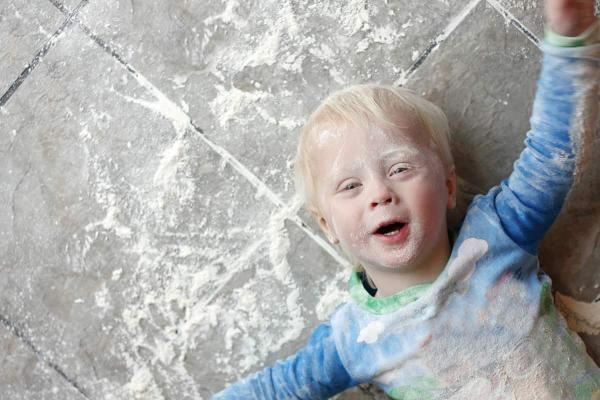
It's exciting when children are learning to walk and talk as they move beyond babyhood into toddlerhood. This time in development can also be quite challenging. Toddlers have strong ideas on what they do and don't want to do, but often don't have the motor skills or reasoning ability to be independent. Parents find themselves exhausted when caring for toddlers or frustrated at their budding "strong" personalities. Don't start looking for daycare and boarding schools just yet. You can get along with your toddler and help her develop into a fantastic child. These six tips will help.
Fall in love with him or her
Love is crucial when caring for children. Love helps people overlook faults and mistakes and also motivates selfless behavior. By the time your child is a toddler, you should have a strong bond. That bond will prevent you from feeling too frustrated and frazzled when tantrums and messes occur. Realize and remember how you felt when your child was born. Watch him sleep and see how precious he is. Hug and snuggle your child and vocalize loving words. Having loving moments daily will help both of you feel secure in your relationship.
Be patient
Toddlers don't understand the concept of time very well. They may want to take 5 minutes to analyze a bug on the sidewalk when you're trying to get somewhere, or take 25 minutes to eat a snack. They might be done with church or a concert after just a few minutes, demanding to go home immediately. Being patient with a toddler takes effort but can help diffuse difficult situations and keep you from pulling your hair out daily. Learn ways to distract your toddler and try to reason with her, even though she might not be willing to listen.
My daughter used to take off her shoes and run to the farthest corner of the house to hide under furniture as we were ready to walk out the door. She thought it was a funny game, but it made me very unhappy and usually late. After getting upset about it a few times, I decided to play it cool and talk with her about it. Although she didn't stop entirely, the novelty wore off quickly; now it's a memory that makes me smile.
Channel your inner child
Parenting toddlers can be incredibly fun if you let loose a little. Don't be afraid to get on the floor and wrestle, finger paint with abandon and jump in puddles after it rains. Toddlers love music, so sing songs with them (the sillier the better) and learn the value of taking a nap with a fuzzy blanket. I enjoyed taking my toddlers outside for finger food picnic lunches on the grass and nature walks that had no real destination. Let your children develop and use their imaginations and read to them often.
Understand developmental stages
In parenting, knowledge is power. If you know that it is perfectly normal for toddlers to graze instead of eating full meals, to refuse to take medicines or naps and to have tantrums, you will stop blaming your child or yourself for so-called "bad" behavior and learn how to deal with difficult situations, instead. Child development books and online articles can help you brush up on what your child should be able to do, where his interests might be and behavior that might indicate a true medical problem.
Keep in mind that your child is his own person, and you can't force him to do certain things. Knowing milestones and stages allows you to celebrate your child's successes and help her learn age-appropriate skills. It will also keep you from pressuring your child to do things she is not ready for.
Seek support
Nothing can make you love your toddler like some time away. Although toddlers still experience separation anxiety, time with a favorite babysitter, aunt or grandparent is great for parents and kids alike. When I had younger kids, I learned to ask for help in specific ways when I needed it. Often people offer to help; consider accepting their kindness. Playgroups, parenting classes and phone calls to trusted friends can also be ways to get support.
Value routine
Toddlers like things to be the same. When you find a routine that works for your child, stick to it. A favorite blanket or stuffed animal might make going to sleep easier, and a special cup or plate will make mealtimes easier. Try to have a general daily routine with time set aside for play, rest and meals. Toddlers need to learn to be flexible too, so don't always give them their own way. Changing up routine every once in a while, or as needs evolve, is refreshing.
My youngest child is no longer a toddler, and although I feel relieved that those days are behind us, I also miss the happy wonder of seeing children experience things for the first time. Toddlers are ready to see and do and learn. Show them some of the amazing things life has to offer, and you'll feel joy together.

